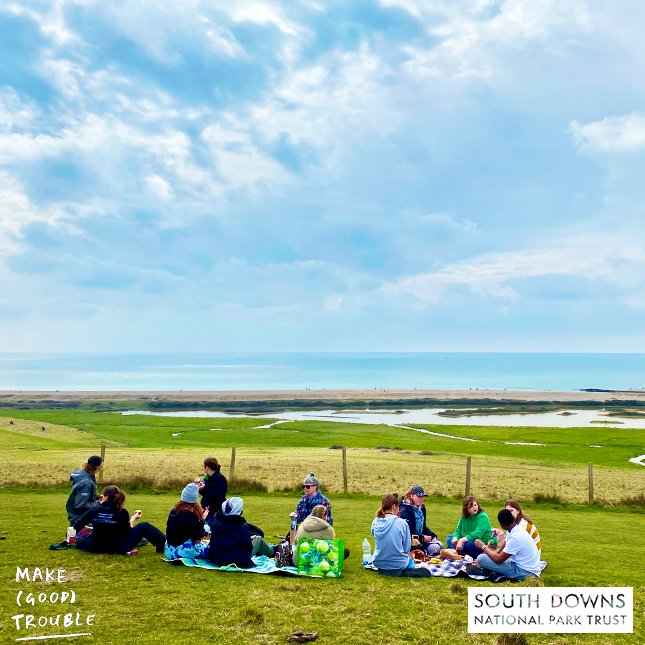Is it July already? I suspect you’re making plans for the summer holidays (we’re almost booked up for our summer club in the glorious South Downs National Park, but there is a waiting list if your young person is interested). If you’re in Hastings and aged between 16 and 24, we’re running a 2-day Catalyst workshop exploring identity with the brilliant photographic artist, Lindsey Smith. You can see some examples of the amazing work so far from participants on The Catalyst project in our Catalyst Gallery. (The above image is from our recent graffiti workshop in Bexhill with Priority 1-54.)
Is vaping on the increase?
Whilst smoking seems to be less popular among today’s young people, anecdotal evidence says that vaping is on the increase. Some estimates say up to 15% of young people are vaping.
If your teen wants help to quit vaping, we have some useful resources on our Help pages aimed at young people.
We’re behind calls for a ban on disposable vapes – never mind that their designs seem to appeal to children, but they’re almost impossible to recycle and are more likely to end up in the general waste (where they’re a hazard). In the UK, 1.3 million vapes are thrown away every week.
School absence figures are stubbornly high
Increasing absences from school have hit the headlines with parents reporting feeling isolated. It’s estimated that 1 in 10 GCSE pupils in England are absent from school each day. It’s perhaps understandable that post-pandemic, children are still anxious about school and that parents working from home feel less pressure to encourage a sickly child to go in to school.
We’ve pulled together the best of the advice out there for our Help page on the topic.
I read this heartfelt letter from a parent and the brilliant response from psychotherapist Philippa Perry in The Guardian. She says, “what seems to be happening in the UK educational system is that the individual pupil is seen as the whole problem rather than acknowledging that the school environment and unhelpful government policies around targets are a part of this, too”.
Raising Teens
Lastly, we’re about to embark on a brand-new series of our BBC radio show, Raising Teens – which will be our fifth series! We’ll be looking at issues around how young people access mental health and wellbeing services, what help is available for children with complex needs, eating disorders, and the journey to getting a diagnosis for ADHD and Autism Spectrum Disorder.
We’re looking for young people, parents, and professionals to talk to, so if you’re interested, please get in touch.
You can listen to past episodes via this link. They cover everything from the teenage brain and anxiety to county lines, stress and resilience. They’re full of practical tips from some brilliant professionals, parents and teens.
Keep in touch!
That’s all for this issue. If you have any suggestions or news you think we should include in next month’s round up, please comment below or get in touch.



